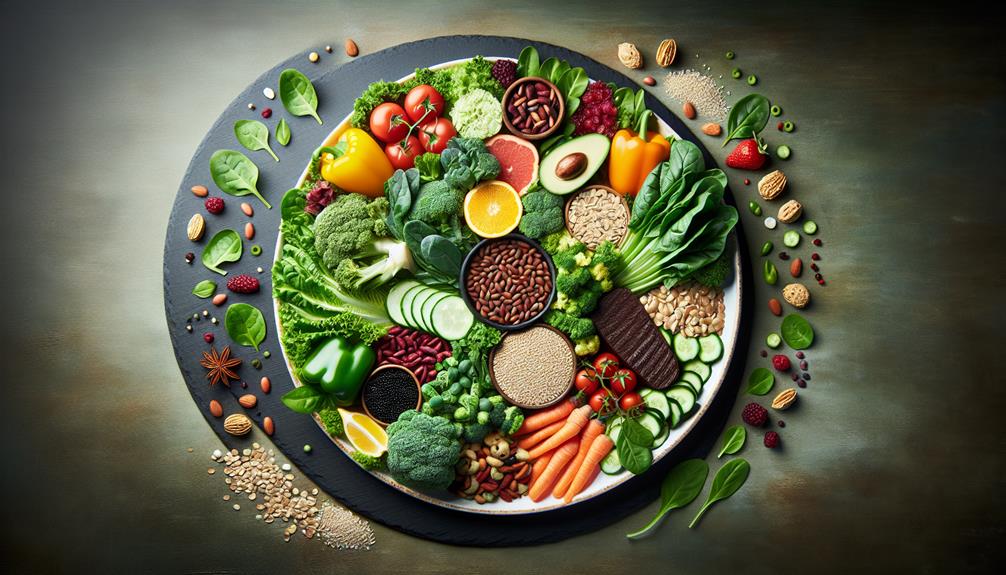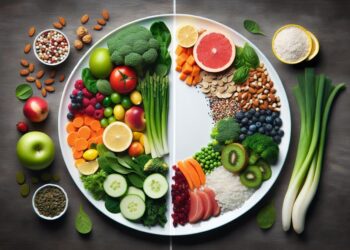Imagine yourself standing at the edge of a calm, crystal-clear lake, the sunlight dancing on its surface. As you take a deep breath, you consider the notion of water fasting, a practice that has gained popularity in recent years. But what exactly are the benefits and risks associated with this extreme form of fasting? Is it a safe and effective way to improve your health, or could it potentially do more harm than good? In this deep dive into water fasting, we will explore both the advantages and potential drawbacks, giving you a comprehensive understanding of this intriguing practice.
Key Takeaways
- Water fasting promotes weight loss through the process of ketosis.
- Water fasting allows for detoxification and elimination of toxins from the body.
- Water fasting can improve skin health and increase energy levels.
- Water fasting should be approached with caution and under professional guidance, especially for individuals with certain health conditions.
Health Benefits of Water Fasting
Water fasting offers a range of health benefits that can positively impact your overall well-being. One of the most significant benefits of water fasting is weight loss. When you engage in a water fast, your body enters a state of ketosis, where it starts burning stored fat for energy. This can lead to rapid weight loss, making water fasting an attractive option for those looking to shed excess pounds.
Additionally, water fasting promotes detoxification. By giving your digestive system a break, water fasting allows your body to focus on eliminating toxins and waste products. During the fasting period, your liver and kidneys work more efficiently to remove harmful substances from your body. This detoxification process can result in improved skin health, increased energy levels, and enhanced overall vitality.
It is important to note that water fasting should be approached with caution, and it is always advisable to consult with a healthcare professional before embarking on an extended fast. While water fasting can offer numerous health benefits, it may not be suitable for everyone, especially those with certain medical conditions or who are pregnant or breastfeeding.
Potential Risks of Water Fasting
While water fasting can offer numerous health benefits, it is important to be aware of the potential risks involved in this practice. It is crucial to approach water fasting with caution and under the guidance of a healthcare professional. Here are some potential risks to consider:
- Dehydration risks: During a water fast, the body relies solely on water for hydration, which can lead to dehydration if not properly managed. Dehydration can cause symptoms like dizziness, fatigue, and decreased cognitive function.
- Nutrient deficiencies: Without the intake of solid food, it becomes challenging to meet the body's nutritional needs. Water fasting can result in deficiencies in essential nutrients such as vitamins, minerals, and proteins. Prolonged nutrient deficiencies can lead to various health issues.
- Electrolyte imbalances: Electrolytes play a crucial role in maintaining proper bodily functions. During water fasting, electrolyte imbalances can occur due to the lack of food intake. Imbalances in electrolytes like potassium, sodium, and magnesium can lead to muscle cramps, weakness, and irregular heartbeat.
- Adverse effects on certain individuals: Water fasting may not be suitable for everyone, especially those with underlying health conditions, such as diabetes or kidney problems. It is essential to consult a healthcare professional before embarking on a water fasting journey to ensure it is safe for you.
How to Prepare for a Water Fast

To prepare for a water fast, it is important to gradually reduce your food intake and make adjustments to your daily routine. This will help your body transition more smoothly into the fasting state and minimize potential discomfort. Here are a few key steps to consider when preparing for a water fast:
- Pre-Fast Hydration: It is crucial to hydrate properly before starting a water fast. Drinking an adequate amount of water in the days leading up to your fast helps prepare your body for the lack of fluid intake during the fast. Aim to drink at least 8-10 glasses of water per day.
- Mental Preparation: Fasting can be mentally challenging, so it is essential to prepare yourself mentally. Take some time to reflect on your goals and motivations for undertaking a water fast. Consider journaling or meditating to help maintain a positive mindset throughout the fast.
Here is a table summarizing the steps to prepare for a water fast:
| Steps to Prepare for a Water Fast |
|---|
| Gradually reduce food intake |
| Make adjustments to daily routine |
| Hydrate adequately before the fast |
| Prepare yourself mentally |
Tips for a Successful Water Fasting Experience
For a successful water fasting experience, it is important to implement certain strategies and techniques to support your body and mind throughout the fasting period. Here are some tips to help you stay hydrated and maintain energy levels during your water fast:
- Stay well-hydrated: Since water is your only source of nourishment during the fast, it is crucial to drink enough water to stay hydrated. Aim for at least 8-10 cups of water per day. If you feel thirsty, it is a sign that your body needs more water.
- Listen to your body: Pay close attention to your body's signals and adjust your fasting duration accordingly. If you start feeling weak or lightheaded, it may be a sign that your energy levels are low. Consider breaking your fast and slowly reintroducing food to regain energy.
- Rest and relax: During fasting, it is important to give your body ample rest and relaxation. Engage in activities that promote calmness and reduce stress, such as meditation, gentle stretching, or taking a relaxing bath. This will help conserve energy and support your overall well-being.
- Break your fast wisely: When it's time to break your fast, start with small, easily digestible meals to avoid overwhelming your system. Opt for nutrient-dense foods like fruits, vegetables, and whole grains to replenish your energy levels gradually.
Breaking the Fast: Transitioning Back to Regular Eating

Transitioning back to regular eating after a water fast is a critical phase that requires careful consideration and gradual reintroduction of food. This process, known as refeeding, is essential to ensure a smooth transition and prevent any digestive issues or discomfort. Slow refeeding allows your body to readjust to the intake of solid foods while minimizing the risk of overeating or digestive distress. It is recommended to start with small, easily digestible meals and gradually increase the portion sizes and complexity of the foods consumed.
During this phase, intuitive eating becomes crucial. Intuitive eating involves listening to your body's hunger and fullness cues and eating in response to those signals. It is important to pay attention to your body's needs and eat mindfully, savoring each bite and giving yourself time to notice how certain foods make you feel. This approach can help establish a healthy relationship with food and promote long-term sustainable eating habits.
To assist you in transitioning back to regular eating after a water fast, here is a sample refeeding plan:
| Day | Meal 1 | Meal 2 | Meal 3 |
|---|---|---|---|
| 1 | Fruit | Soup | Salad |
| 2 | Smoothie | Cooked Vegetables | Protein (e.g., lean meat, tofu) |
| 3 | Whole Grains | Healthy Fats (e.g., avocado, nuts) | Raw Vegetables |
| 4 | Balanced Meal | Balanced Meal | Balanced Meal |
| 5 | Resume Regular Eating | Resume Regular Eating | Resume Regular Eating |
Frequently Asked Questions
Can Water Fasting Help With Weight Loss?
Water fasting can be effective for weight loss compared to calorie restriction. It helps reduce calorie intake and promotes fat burning. Adequate hydration is crucial during water fasting for weight loss to maintain overall health.
Can Water Fasting Improve Mental Clarity and Focus?
Water fasting, when done properly, can potentially improve mental clarity and focus. By giving your body a break from digestion, it allows your brain to function optimally, resulting in increased cognitive performance and productivity.
Can Water Fasting Help With Detoxification?
Water fasting can be beneficial for detoxification, as it allows your body to flush out toxins. Additionally, it may help reduce inflammation, which is linked to various health issues. However, it's important to approach fasting with caution and consult a healthcare professional.
Can Water Fasting Improve Immune Function?
Water fasting can improve immune function by supporting the immune system, reducing inflammation and promoting overall health. However, it's important to consult a healthcare professional and consider potential risks before starting a water fasting regimen.
Can Water Fasting Affect Hormone Levels?
Water fasting can have an impact on hormone levels. For example, it may affect the menstrual cycle by causing irregularities or missed periods. It can also potentially impact thyroid function, leading to changes in metabolism and energy levels.
Conclusion
In conclusion, water fasting can offer a range of health benefits, such as improved insulin sensitivity and weight loss. However, it is important to be aware of the potential risks, such as nutrient deficiencies and electrolyte imbalances. Before embarking on a water fast, consult with a healthcare professional and take necessary precautions to ensure a safe experience. Remember, "don't bite off more than you can chew" – listen to your body and make informed decisions when it comes to fasting.













